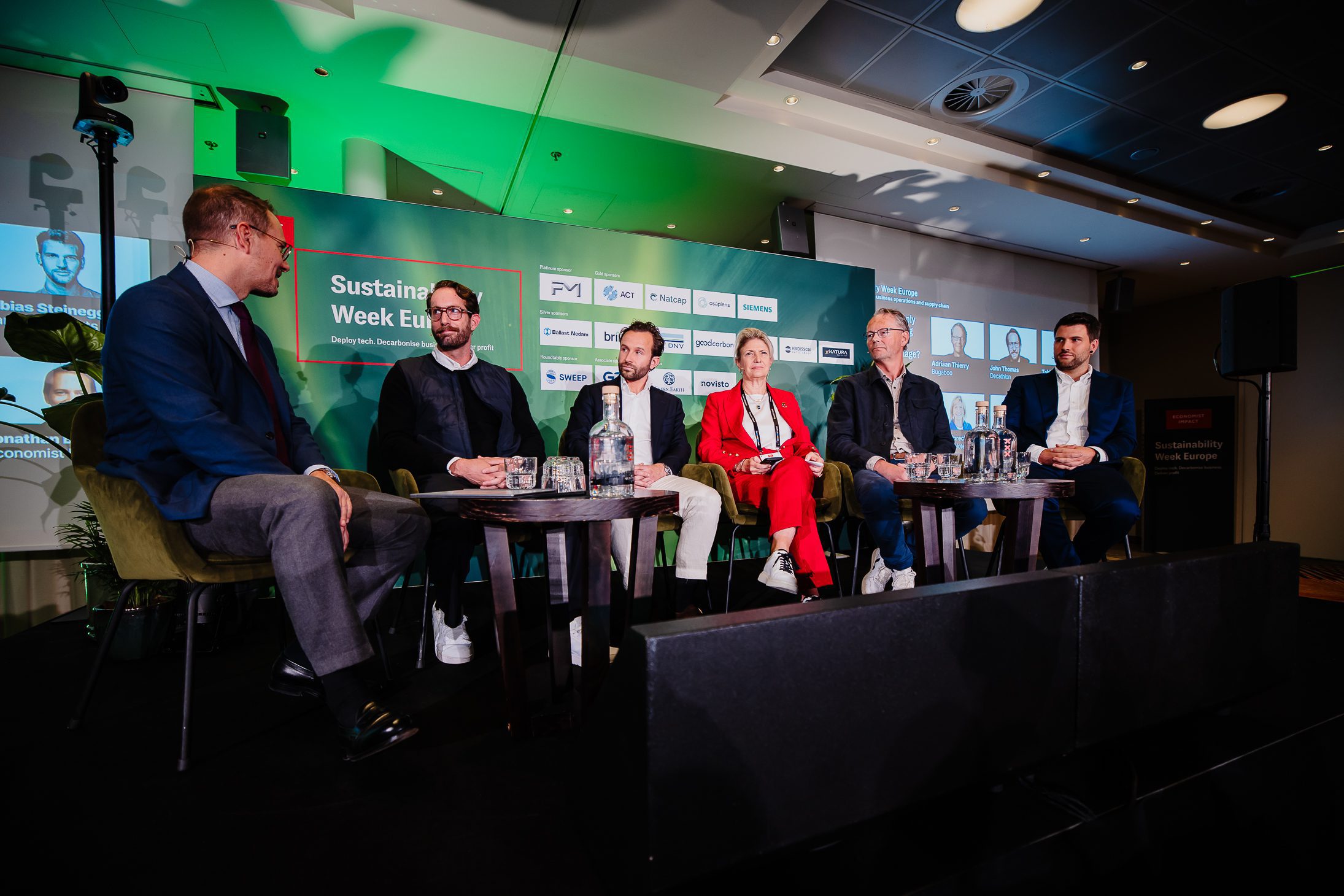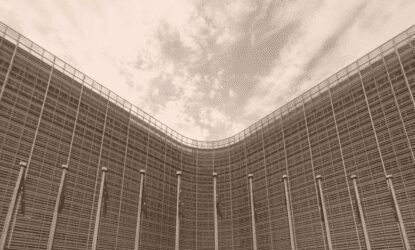 Improve supply chain transparency with EcoVadis
Improve supply chain transparency with EcoVadis
“Decarbonisation is not just a responsibility but a business imperative and a differentiator that shapes the future of industries.”
Sustainability leadership is a defining marker of business resilience and innovation. As shared during the Economist Sustainability Week 2025 panel, the path to net zero is not just about meeting targets but about rethinking how organisations operate, collaborate, and grow. From circular design to clean energy transitions and data-driven accountability, industry leaders are proving that credible climate action can fuel both purpose and performance.
Key takeaway #1: Embedding sustainability at the core of business
Across sectors, one clear message emerged: Sustainability must be embedded into the DNA of business decision-making. John Thomas from Decathlon highlighted how the company’s extensive supply chain, spanning 1,200 suppliers in 45 countries, is being transformed through clear sustainability KPIs integrated into supplier reviews. Designers are incentivised through Decathlon’s eco-design programme, driving circular business models such as repair and resale that already contribute around 3% of the company’s 2025 gross margin.
This alignment between performance and purpose is echoed across industries. Bugaboo, led by Adriaan Thierry, is advancing sustainability through material innovation, replacing fossil-based plastics with bio-based and recycled alternatives, while extending product lifecycles through repair, resale, and leasing. These examples show that embedding measurable sustainability metrics doesn’t just reduce emissions; it strengthens competitiveness and consumer trust.
Key takeaway #2: Accelerating the energy transition through collaboration
The journey to net zero demands bold choices, especially when addressing energy-intensive operations. Mammut’s Tobias Steinegger shared the brand’s focus on phasing out coal energy in supplier factories, a complex but critical decarbonisation effort. He acknowledged the challenges of transitioning from coal to cleaner sources like natural gas due to the long lifespan of infrastructure but stressed that collaboration is the only way forward. Working jointly with suppliers and even competitors has proven a powerful lever to overcome systemic barriers and scale solutions faster.
The Mercedes-AMG PETRONAS F1 Team, represented by Alice Ashpitel, is also leading by example in operational innovation. By decarbonising logistics and adopting sustainable fuels for its transport fleet, the team demonstrates how ambitious emissions reduction can go hand in hand with high performance. These efforts highlight that collaboration, innovation, and a willingness to act beyond traditional boundaries are now the true accelerators of progress.
Key takeaway #3: Driving accountability through data and innovation
True sustainability leadership extends beyond emissions — it is about transparency, accountability, and measurable impact. Inge Huijbrechts from Radisson Hotel Group shared how the company is pioneering net zero hotel verification in partnership with TÜV Rheinland. Their data-driven management of Scope 3 emissions, coupled with creative measures such as menu engineering to reduce food waste, is not only lowering impact but also boosting guest satisfaction.
About our experience at Nexio Projects, I emphasised during the discussion that data and human insight must go hand in hand to drive credible climate action. From our work with companies across industries, one of the biggest challenges lies in engaging SMEs within the supply chain, a crucial step to overcome bottlenecks in decarbonisation, as these smaller partners often account for the majority of an organisation’s Scope 3 emissions.
What we’ve seen in practice is that rigorous carbon footprint assessments, paired with advanced analytical tools and clear sustainability KPIs, give companies the clarity they need to prioritise action and measure tangible progress. This structured, data-driven approach builds trust, transparency, and long-term resilience across entire value chains.
Ultimately, effective leadership in sustainability is about being pragmatic yet ambitious, blending innovation, collaboration, and measurable impact to turn commitments into lasting change.
From ambition to action with Nexio Projects
Building on the insights shared during the panel, several key drivers of effective sustainability leadership stand out: integrating sustainability KPIs, adopting advanced tools for decarbonisation roadmaps, fostering collaboration, and ensuring transparent reporting. Together, these pillars enable businesses to navigate complex regulatory landscapes and achieve meaningful, lasting change.
At Nexio Projects, we make sustainability leadership accessible. Named one of the top 10 boutique ESG and sustainability strategy consultancies globally by Verdantix, and a Top Brand in Corporate Sustainability 2025 by EUPD Research, we help organisations translate ambition into tangible business impact. From corporate reporting to strategy and implementation, our experts guide you in setting science-based targets, conducting comprehensive carbon footprint assessments, and developing actionable decarbonisation roadmaps supported by the latest tools.
Partner with Nexio Projects to transform sustainability ambition into measurable leadership — and accelerate your journey towards a net zero future.
Subscribe to our monthly newsletter for regular ESG news, insights and more thought leadership pieces.











